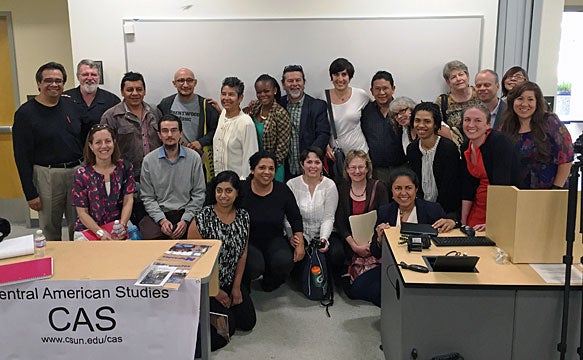Submitted by Douglas Carranza
 Photo courtesy of the Central American Studies Program
Photo courtesy of the Central American Studies ProgramCSUN’s Central American Studies Program, housed by the College of Humanities, celebrated its annual symposium “Migration, Culture, and Memory” March 24 through 27. The four-day event provided scholars, artists, activists, and students the opportunity to engage in interdisciplinary discussions about the transnational dimensions of Central American culture, the diversity of worldviews en-tangled in the experience of immigration and in the migrant’s daily life, and innovative critical approaches to migration, identity formation, memory, and the future.
The symposium presented academic research on the concepts of human movement and subjectivity, border porosity and fluidity, community and trans-nationality. It provided spaces of exchange among participants and the local Central American community on current events such as youth migration and border crises, deportation, integration, children in courts, and migrant shelters. The discussions also addressed indigenous migration and the culture of exclusion, politics of migration, and the impact of neoliberal developmental programs in indigenous communities from Honduras, Panama, and Mexico. The symposium included an array of international scholars, artists, and community activists from El Salvador, Honduras, Panama, Mexico, Nigeria, and the United States.
This event was organized by Central American Studies, and it was cosponsored by the Office of the Provost, the College of Humanities Academic Programming Fund, the Central American Research and Policy Institute, the Central American United Student Association, a variety of departments and programs at CSUN, the CSUN Art Galleries, and the California Institute of the Arts. ◊
